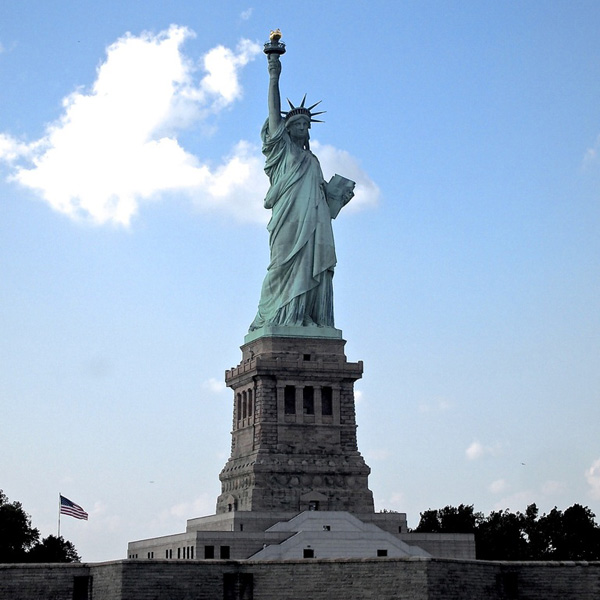The United States resume visa processing, but with a catch

[Statue of Liberty. Photo credit to Pxhere]
The United States has resumed visa interviews for international students with new requirements mandating social media disclosure and screening for potential security threats.
In late May, the Trump administration temporarily suspended new visa interviews, an essential step in obtaining authorization to stay in the United States.
Following this pause, the United States State Department has instructed consular officers to begin scheduling new appointments for visas again, but now requires an additional screening process that examines the social media accounts and activities of new visa applicants to identify "any indications of hostility toward the citizens, culture, government, institutions, or founding principles of the United States."
The enhanced screening process applies to F visas (international academic students), M visas (international vocational students), and J visas (exchange students).
Under the new protocol, applicants must make their social media accounts public, ensuring the contents of the account are visible to anyone.
Refusal to comply could result in the applicant being labeled as "trying to hide their activity,” according to the State Department.
Supporters laud the change as a necessary security measure, protecting the United States by preventing potentially dangerous individuals from entering the country.
These advocates frame the additional screening as a patriotic move consistent with Trump’s reputation as a president focused on immigration restrictions and secure borders.
However, many international students who plan to attend or currently attend academic institutions in the United States are voicing concern, joined by many in the United States’ academic community and Democrats.
Open Doors, an organization that collects data on foreign students in the United States, reported that over one million international students were enrolled in US colleges during the 2023-24 school year.
Sarah Spreitzer, vice president of the American Council on Education, told the New York Times, "I think we are very worried that this is going to be some political litmus test that’s going to be applied to students. I don’t believe that’s ever happened before."
Political observers have pointed out that this is part of a larger action against higher education led by the Trump administration.
Many universities depend on revenue and funding from international students, as these students are often less eligible for scholarships and many public institutions charge higher tuition rates for non-resident students.
Previously, Trump has attempted to outlaw Harvard University from accepting international students; a judge prohibited such a ban from taking effect.
Critics argue that the vague nature of the screening process and the unclear criteria for determining visa applicant eligibility serve as tools for ideological monitoring.
A separate list of instructions to diplomats, obtained by Politico, directs consular officials to screen for “advocacy for, aid or support for foreign terrorists and other threats to US national security” and “support for unlawful antisemitic harassment or violence.”
Secretary of State Marco Rubio announced on May 28th that the federal government intends to "aggressively revoke" Chinese students' visas.
When asked for comment on the social media screening requirements, Chinese Foreign Ministry spokesperson Guo Jiakun stated, "China consistently opposes the politicization of educational exchanges."
The State Department has announced that it “continually vets all visa holders for the duration of their stay” – a commitment to ongoing surveillance that raises questions about the future of academic and ideological freedom in the United States.

- Moojin Hong / Grade 11
- Chadwick International School

![THE HERALD STUDENT REPORTERS [US]](/assets/images/logo_student_us.png)
![THE HERALD STUDENT REPORTERS [Canada]](/assets/images/logo_student_ca.png)
